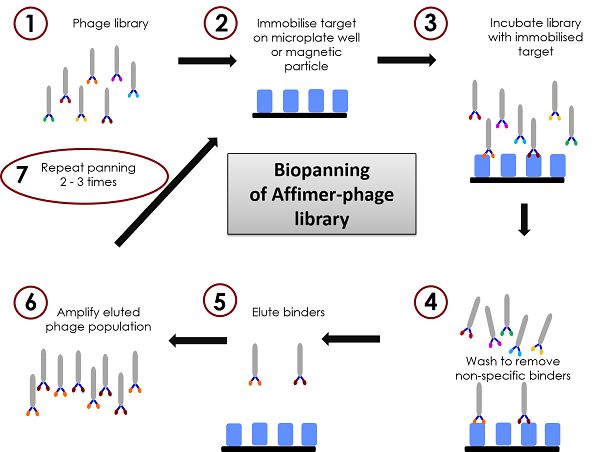Adhiron screening facility
Adhiron technology
Antibodies are the best-studied group of protein binding molecules to date, and have been successfully applied to a variety of biological and medical problems. They are particularly useful as research reagents but in some applications their size and complexity can be limiting. There also can be batch-to-batch variability and in some cases poor validation.
What are Adhirons?
Adhirons are antibody alternatives, also known as antibody mimetics.
Unlike antibodies, adhiron molecules have small, robust, easily manipulated non-antibody scaffolds which provide a complementary technology for many molecular recognition solutions. They were first developed in laboratories at Unversity of Leeds and have since been an area of interest as they offer promise for new diagnostics and treatment of diseases, such as cancer.
Reagents based on the Adhiron scaffold can be selected to bind to, and block specific surfaces on target proteins and therefore have potential as molecular biology tools and therapeutic agents.
As diagnostic tools they can be used for the detection and imaging of proteins in patient samples. The BSTG will screen for Adhiron proteins that bind to your target molecules by using phage display.
Development of Adhiron - Phage display

Phage display is a well established, robust and reliable in vitro selection method, that is ideal for the generation of affinity reagents.
We have generated two highly complex phage display libraries each containing more than 10 billion Adhiron proteins.
We have generated Adhiron proteins to more than 500 target proteins, peptides and small molecules.

